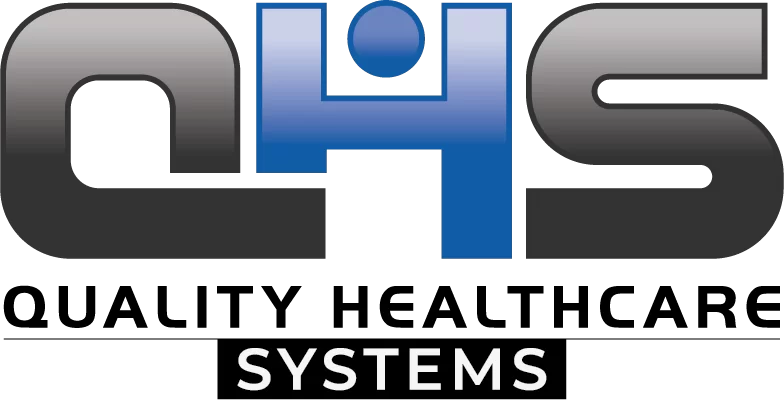Opening a DME (Durable Medical Equipment) business can be a fulfilling and profitable venture in the healthcare industry. With the increasing demand for quality medical equipment, a DME business allows you to support patient care and meet essential community needs. This guide walks you through the process of starting a DME company, covering everything from initial research to legal requirements and marketing strategies.
What is a DME Company?
DME stands for Durable Medical Equipment, which includes essential healthcare items like wheelchairs, hospital beds, oxygen tanks, and mobility aids. A DME company provides these products to patients, often through partnerships with healthcare providers and insurance companies. Establishing a DME business requires knowledge of healthcare needs and a commitment to delivering quality equipment and services.
Steps to Start a DME Business
Step 1: Research the DME Business Landscape
Before you begin, conduct thorough market research to understand the demand for DME products in your area. Identify your target audience, assess local competition, and consider potential suppliers. A clear picture of your market will help guide your business model and operational focus.
Step 2: Create a Detailed DME Business Plan
A strong business plan for a medical equipment supplies company is essential for defining your goals, outlining your offerings, and attracting funding. Key components of your business plan should include:
- Executive Summary: Provide an overview of your business idea and goals.
- Business Goals and Vision: Define your purpose and what sets your DME business apart.
- Target Market: Specify the patient demographics and healthcare providers you plan to serve.
- Revenue Forecast and Budget: Estimate costs and potential revenue to help manage finances effectively.
Your DME business plan should also cover operational details, such as marketing strategies and staffing needs.
Step 3: Licensing and Compliance Requirements
Operating a DME company requires various licenses and permits. Compliance with federal and state regulations ensures that your business operates legally and maintains trust with clients and insurers.
- Medicare Supplier Enrollment: Register with the Centers for Medicare & Medicaid Services (CMS) to become a Medicare-approved supplier.
- State Licenses: Obtain necessary state-specific licenses to operate a healthcare-related business.
- DEA License: If your DME business will handle controlled substances, a Drug Enforcement Administration (DEA) license is required.
For instance, if you’re considering how to start a DME business in California, Texas, or Florida, review each state’s licensing rules with their respective boards to ensure compliance. Make sure to constantly keep up with the changes in regulations to maintain compliance and avoid legal issues.
Step 4: Secure Financing
Starting a DME company can involve significant costs often ranging from $150,000 to $500,000, depending on the scope of operations. When planning your finances, consider initial setup expenses like equipment, inventory management, and marketing. Common funding options include:
- Bank Loans: Many banks offer loans tailored to small businesses in healthcare.
- SBA Loans: Small Business Administration (SBA) loans offer favorable terms for qualifying businesses.
- Private Investors: Partnering with private investors can provide additional capital and industry expertise.
Estimated Cost Table for Starting a DME Company
| Expense Category | Estimated Cost Range |
|---|---|
| Licensing and Permits | $5,000 – $15,000 |
| Inventory | $20,000 – $50,000 |
| Equipment | $10,000 – $30,000 |
| Staffing | $40,000 – $80,000 |
| Marketing | $5,000 – $15,000 |
| Miscellaneous Expenses | $5,000 – $10,000 |
| Total Estimated Cost | $85,000 – $200,000 |
Consider small business loans, grants, and lines of credit to help finance your new Durable Medical Equipment business.
Step 5: Build Relationships with Vendors and Suppliers
Reliable suppliers are essential for maintaining consistent inventory and fulfilling customer needs. Look for reputable suppliers who offer high-quality equipment and fair pricing. Building solid relationships with suppliers can help ensure product availability, improve pricing terms, and support your business’s reputation for quality. Look for suppliers that offer quality products at competitive prices.
Types of Vendors:
- Pharmaceutical Wholesalers: For prescription-based DME items.
- Medical Supply Distributors: For general DME products like wheelchairs and hospital beds.
- Local Suppliers: For faster delivery and support.
Step 6: Choose a Location and Set Up Your Business
Selecting an accessible location is crucial for a DME business. Choose a space with sufficient storage for inventory and designated areas for product demonstration and customer service. Ensure your location is compliant with accessibility and safety standards, which may vary depending on local regulations.
Step 7: Hire Qualified Staff
Hiring knowledgeable staff is essential to running a successful DME company. Look for individuals experienced in customer service, DME medical billing, sales, or medical inventory management. Key roles include:
- Customer Service Representatives: These employees handle patient inquiries and provide guidance on equipment.
- Inventory Managers: Responsible for tracking stock, placing orders, and managing supplier relationships.
- Billing and Insurance Specialists: Staff with experience in medical billing can help navigate complex insurance claims and billing for DME.
Provide ongoing training to ensure that your staff stays updated on regulatory changes and industry best practices.
Step 8: Implement a Billing System
A robust billing system is essential for managing insurance claims and revenue. Consider working with a DME billing company or investing in a billing platform designed specifically for DME providers. This ensures claims are handled accurately and reimbursed promptly.
Billing and insurance processes are crucial to your company’s profitability. Ensuring that claims are submitted accurately and on time reduces the number of AR days, the risk of denials and payment delays.
Step 9: Build a DME Business Model
Design a business model that aligns with the needs of your market and provides sustainable revenue. Common DME business models include:
- Rental Services: Offering equipment rentals, especially for temporary needs, such as wheelchairs and hospital beds.
- Direct Sales: Selling equipment to customers directly, which can create long-term revenue.
- Insurance Billing: Partnering with insurance providers to offer covered equipment for patients.
A strong business model will help you maximize revenue, streamline operations, and establish a reputable brand.
Step 10: Market Your DME Business
Effective marketing is critical for attracting customers and healthcare providers. Here are a few strategies to get started:
- Digital Marketing: Use SEO, social media, and Google My Business to reach customers searching for medical equipment supply businesses.
- Community Outreach: Participate in local events, sponsor health fairs, and collaborate with healthcare providers to build relationships.
- Special Offers: Consider offering a discount for new customers or a referral program for healthcare providers.
Sample DME Business Plan Template
Here is a sample business plan template you can use in your business planning process:
Business Name: [Your Business Name]
Business Address: [Your Address]
Contact Information: [Your Phone Number, Email Address]
Business Type: Durable Medical Equipment Supplier
Start Date: [Your Desired Start Date]
1. Executive Summary
[Your Business Name] is dedicated to providing high-quality medical equipment to patients and healthcare providers. Our goal is to improve patient outcomes by ensuring timely access to essential equipment such as wheelchairs, CPAP machines, oxygen tanks, and incontinence supplies. With a focus on excellent customer service, compliance, and efficient billing processes, we aim to become a trusted name in the DME industry.
2. Business Objectives
- To establish a strong presence in [Your Target Market/Region] by Year 1.
- Achieve [$Your Revenue Goal] in revenue within the first 12 months.
- Maintain a [Your Customer Satisfaction Goal]% customer satisfaction rate.
- Secure contracts with at least [Your Target Number] insurance providers, including Medicare and Medicaid.
3. Market Analysis
Target Market:
- Individuals requiring long-term care or post-hospital recovery.
- Healthcare providers, including hospitals, clinics, and home health agencies.
- Elderly patients with chronic conditions.
Market Trends:
- Increasing demand for home healthcare equipment due to aging populations.
- Rising importance of insurance coverage for DME services.
- Growth in telehealth and remote monitoring requiring advanced equipment.
Competitive Analysis:
- Competitors include [Competitor 1], [Competitor 2], and [Competitor 3].
- Our competitive advantage lies in personalized service, faster delivery, and expertise in navigating insurance reimbursements.
4. Services and Products Offered
- Wheelchairs and mobility aids
- Respiratory equipment (e.g., oxygen tanks, CPAP machines)
- Incontinence supplies
- Hospital beds and mattresses
- Orthopedic supports
5. Operational Plan
Location and Facility Needs:
- A storefront and warehouse for inventory storage and distribution.
Equipment Procurement:
- Build relationships with reputable manufacturers and suppliers.
Staffing Plan:
- Hire experienced personnel for roles including:
- Billing and insurance specialists
- Customer service representatives
- Delivery and maintenance technicians
Technology Requirements:
- Implement a DME-specific billing and inventory management software for seamless operations.
6. Marketing and Sales Strategy
- Develop an online presence through a professional website and social media channels.
- Partner with local healthcare providers to secure referrals.
- Attend industry trade shows and events to network with potential partners.
- Offer free consultations to educate customers on available products and insurance coverage.
7. Financial Plan
Startup Costs:
- Equipment Inventory: [$Your Budget]
- Storefront/Warehouse Rent: [$Your Budget]
- Software and Technology: [$Your Budget]
- Marketing and Branding: [$Your Budget]
- Operational Licenses and Insurance: [$Your Budget]
Revenue Projections:
- Year 1: [$Your Goal]
- Year 2: [$Your Goal]
- Year 3: [$Your Goal]
Funding Requirements:
- Initial funding needed: [$Your Budget]
- Sources: [Your Funding Sources].
8. Compliance and Accreditation
- Obtain necessary accreditations from organizations like [Accreditation Body].
- Ensure compliance with Medicare and Medicaid regulations.
- Stay updated on state-specific licensing requirements for DME suppliers.
9. Risk Management Plan
Potential Risks:
- Reimbursement delays from insurance companies.
- Supply chain disruptions.
- Regulatory changes impacting compliance.
Mitigation Strategies:
- Maintain cash reserves for operational stability.
- Establish multiple supplier relationships.
- Hire a compliance specialist to navigate regulatory updates.
Conclusion
Starting a DME business can be both a profitable and impactful venture in the healthcare sector. By conducting market research, securing funding, building a reliable supply chain, and focusing on quality service, you’ll be well-positioned for success. With the right preparation, your DME business can play a vital role in providing patients with the equipment they need for better health and mobility






